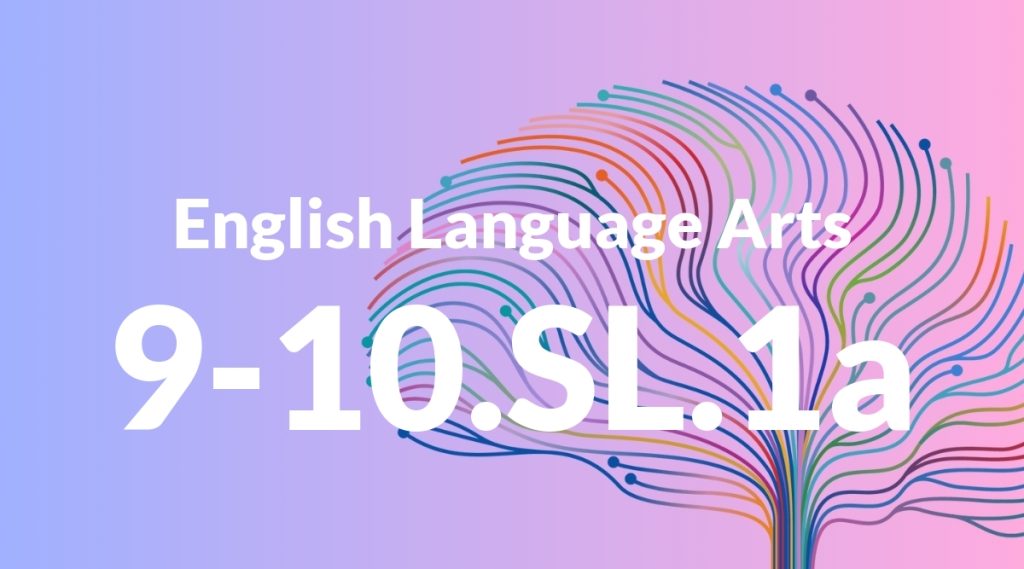Standard: 9-10.SL.1a – Come to discussions prepared, having read and researched material under study; explicitly draw on that preparation by referring to evidence from texts and other research on the topic or issue to stimulate a thoughtful, well-reasoned exchange of ideas.
Grade level: Grade 9-10
Subject: English Language Arts
Domain: Speaking & Listening
Teacher Overview
This standard emphasizes the importance of preparation and evidence-based discussion in English Language Arts. By coming to discussions well-prepared, students can engage more deeply with the material, promote critical thinking, and contribute to a more meaningful exchange of ideas. Students should have foundational skills in reading comprehension, note-taking, and basic research. They should also be comfortable participating in group discussions and expressing their thoughts clearly.
Mastering this standard will enable students to participate in more complex discussions, enhancing their critical thinking and communication skills. These skills are crucial for higher-level academic work and real-world applications.
Common Misconception 1
A common misconception is that merely reading the material is sufficient preparation. This is incorrect because without actively engaging with the text through note-taking and identifying key evidence, students may not be able to contribute meaningfully to the discussion.
Intervention 1
To address this, teachers can implement structured reading assignments that require students to annotate texts and prepare discussion questions. This helps ensure that students are actively engaging with the material.
Common Misconception 2
Another misconception is that personal opinions alone are enough for a discussion. This is incorrect because discussions should be grounded in evidence and critical analysis, not just personal viewpoints.
Intervention 2
Teachers can address this by modeling how to incorporate evidence into discussions and providing practice opportunities where students must support their opinions with textual evidence.
Prerequisite Knowledge
Students should have basic skills in reading comprehension, note-taking, and summarizing information from texts. They should also be comfortable with basic research methods and have experience participating in group discussions.
Subsequent Knowledge
Students will develop advanced skills in critical thinking, argumentation, and the ability to synthesize information from multiple sources. They will also enhance their ability to communicate ideas clearly and persuasively in both academic and real-world settings.
Instructional Activities
- Structured reading assignments with annotation
- Preparation of discussion questions
- Group research projects
- Role-playing debates
- Peer review sessions




